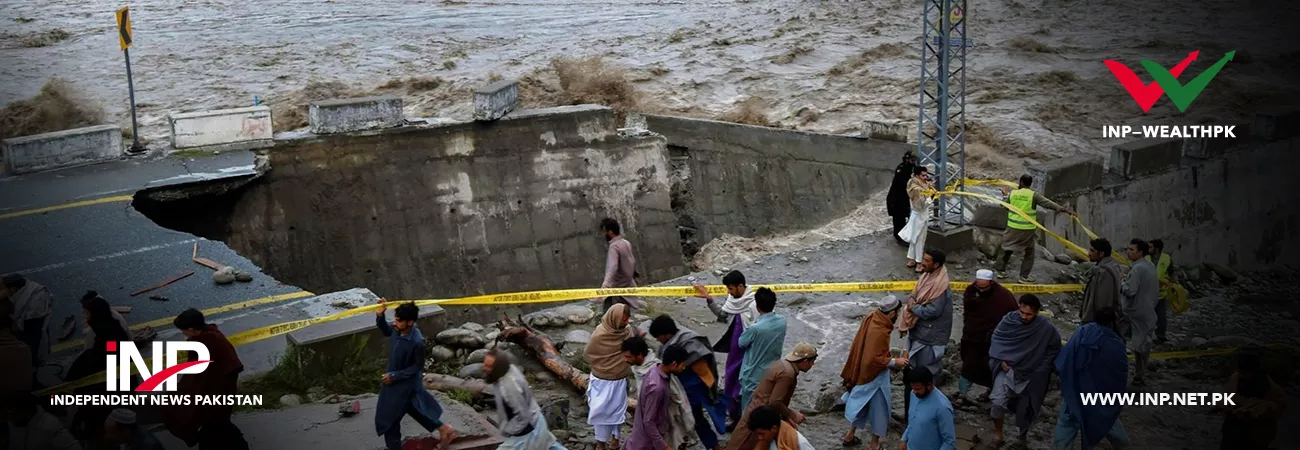INP-WealthPk
A public forum requested the world waive Pakistan's debts in the aftermath of the devastating floods caused by climate change.
The forum was held under the theme "A Call for Climate Action” to foster an open dialogue with civil society members, academicians, journalists, district government, and international non-governmental organisations. The event offered them an opportunity to share their views and proposals ahead of the climate action and debt swap for nature.
Member of Indus Consortium and Grow Green Network and Manager of Programmes at Doaba Foundation Javed Iqbal proposed that multilateral development banks and financial institutions should cancel the external debt of Pakistan.
United Nations Office for the Coordination of Humanitarian Affairs (UNOCHA) representative of Punjab Shumaila Roohi said that floods have increased the transmission of water- and vector-borne diseases in the country, especially in the flooded areas. "It is high time that all the developed countries should come forward and join hands with Pakistan to tackle the situation," he added.
Representative of the Disability Inclusive Community Development Persons Muhammad Hussain said, "the share of Pakistan is less than one per cent of greenhouse gas emissions and carbon footprints, but it falls into the top 10 vulnerable countries to climate impacts across the world.”
Vice Chancellor of Muhammad Nawaz Sharif University of Agriculture (MNSAU) Dr Asif Ali stressed, "we are drowning due to the unexpected monsoon rainfalls and recurring droughts under rapid climate change.”
He believes that Pakistan's food security situation is expected to worsen in the future. He underlined the need to act collectively and contribute personally.
Additional Deputy Commissioner Revenue of Multan Ameer Hussain said, "millions of people across the country are at risk of or are already facing energy and water crises, as well as food insecurity, as a result of lower-than-expected agricultural production owing to climate shocks, increased insecurity, and higher food costs.”
MNSUA Assistant Prof Dr Khuram Mubeen underscored the need for the development of research systems to manage hill torrent rainwater most efficiently, improve agricultural and livestock productivity and reduce the impact of land erosion and sediment load on a sustainable basis.
He urged the development of an early warning and prediction system in hill-torrent-affected areas across the country to reduce the rain-fed adversaries in the future.
Later, the participants signed a charter of demand and appealed to multilateral banks for climate justice by debt swap for nature, and spending the funds on the rehabilitation of flood-affected people.
Credit : Independent News Pakistan-WealthPk













